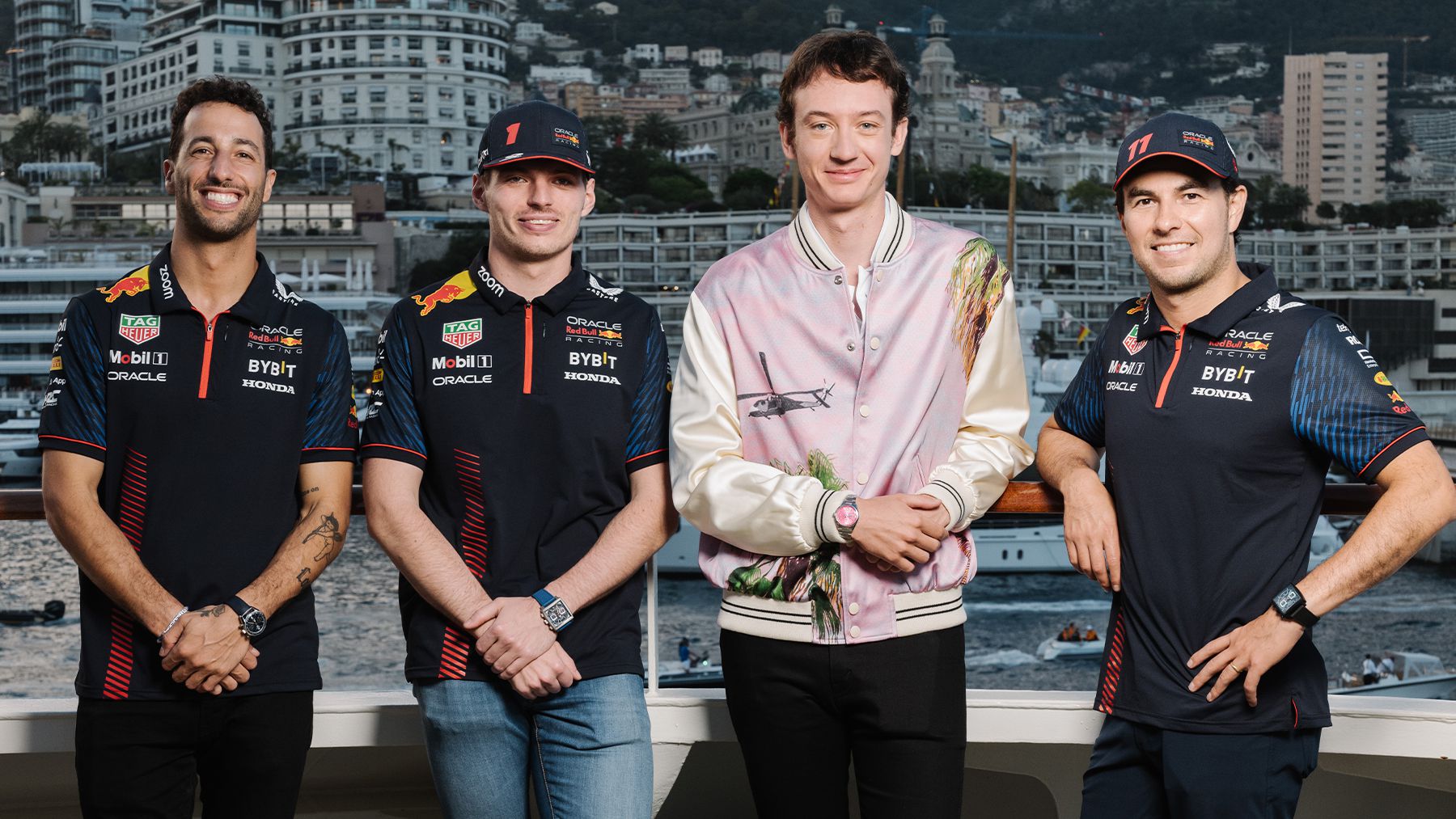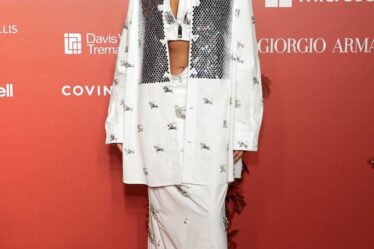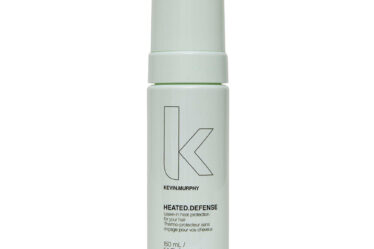
Three years after being appointed chief executive of the Swiss watch company TAG Heuer, Frédéric Arnault said the brand had now “reached milestones in brand transformation.”
According to the 28-year-old son of Bernard Arnault, chairman and chief executive of TAG Heuer’s parent company LVMH, the main purpose of the transformation project was “brand elevation” across products, marketing and distribution.
In an exclusive interview with BoF, Arnault said TAG Heuer has two years’ worth of orders for the most expensive watch it has ever produced, the half-million-dollar Carrera Plasma introduced earlier this year; that the company’s next move would be a foray into “high horology” with more complicated chronographs priced between $50,000 and $100,000; and that the brand’s average price point has now risen above 3,000 Swiss francs ($3,320).
“We did a lot of improvements on the products, on quality, on design and on the iconicity of those products,” said Arnault, speaking at the Monaco Grand Prix last weekend (TAG Heuer sponsors the Oracle Red Bull Racing team). Last autumn, TAG Heuer’s square-cased Monaco won the Icon Prize at the Grand Prix d’Horlogerie de Genève.
Arnault said TAG Heuer’s increased average price point was a result of a strategy begun by his predecessor, Stéphane Bianchi, now president of LVMH’s watches and jewellery division.
In 2018, when Bianchi began at TAG Heuer, the brand’s average price point was significantly lower at 2,200 Swiss francs, said Arnault. He declined to divulge how many watches TAG Heuer produced annually, or the company’s turnover, but said that it was “higher” than the 729 million Swiss franc estimate published in Morgan Stanley’s annual Swiss watch industry report in March.
A move upmarket would put TAG Heuer in line with one of the clearest recent shifts in the Swiss watch industry: lower volumes, higher values. In 2018, annual exports by volume of Swiss watches totalled 23.7 million units, according to the Federation of the Swiss Watch Industry (FHS). Last year, that figure had fallen to 15.8 million. But at the same time, revenues have climbed, reaching a record 24.8 billion Swiss francs in 2022. The spike has been driven by watches with an average export value (roughly half retail) above 3,000 Swiss francs, the highest value category in the FHS’s breakdown.
Despite increasing prices, Arnault insisted TAG Heuer was still a “first luxury watch” brand and that the company’s entry-price watches, typically Formula 1 battery-powered models costing from around $1,500, remained its core business. “There’s this belief that between 1k and 3k [dollars], volumes are going down,” he said. “But it’s not what we’re seeing.”
Even so, he said he had witnessed a change in his customer base. “Ten years ago, the core focus was the customer who had one watch in his lifetime, maybe two,” he said. “And yes, it’s true there’s less of this customer, but the collector customer base profile is growing tremendously, and it’s grown a lot in the past 10 years. There are a lot more people collecting watches and now this is taking a much bigger share in our customers.”
He also said he believed his consumers were no longer driven by price. “The price is not the topic,” he said, adding that he felt multi-brand retailers were too focused on selling watches according to budget. “It’s about the story, the design and the brand values.”
To that end, Arnault has worked to rewire TAG Heuer’s marketing strategy. Under Jean-Claude Biver, Bianchi’s predecessor as TAG Heuer chief executive, TAG Heuer had entered elite football, becoming the official timekeeper of a number of the world’s professional leagues, including the Premier League. But Arnault exited the brand from the sport. “It took three years to stop all these deals and they’ve now all gone,” he said.
“When I joined, we decided to refocus on sports associated with speed and motorsports, which was a bet at the time, even if it’s not that long ago. We were hearing motorsports were an old man’s sport that talked mainly to Europeans and not to women or the younger generation. We were also hearing there were issues of sustainability.”
TAG Heuer’s continued investment in Formula 1 and motorsport had paid off, though, he said. “We believed it was so important to the brand, and we had to invest heavily. It proved to be right.” Arnault cited the impact of Formula 1′s owner, the Nasdaq-listed American company Liberty Media, on the sport and what he called its “disruptive communications strategy,” powered by the hit Netflix series Drive to Survive.
Arnault said he had no plans to follow Rolex’s lead and enter the fast-growing certified pre-owned category, but that TAG Heuer would continue to invest heavily in what he called “content and storytelling.” In April, the brand released the five-minute film The Chase for Carrera directed by David Leitch, starring Ryan Gosling and Saturday Night Live’s Vanessa Bayer, and featuring TAG Heuer’s automotive partner Porsche, another deal done since Arnault’s arrival.
While LVMH singled out TAG Heuer with Tiffany and Bulgari for its “sustained creative momentum” in its 2022 annual report, the watchmaker’s revenues appeared to remain below pre-pandemic levels. Others meanwhile have made rapid gains. According to Morgan Stanley estimates, rival Breitling has increased its turnover from 440 million Swiss francs in 2019 to 860 million Swiss francs in 2022. The same reports suggest TAG Heuer sales are still about 20 percent down on 2019 levels, when its revenues were estimated at 857 million Swiss francs.
But Arnault’s impact at the company has already made his next steps the subject of industry speculation. Earlier this year he attended a Louis Vuitton event in Zermatt and a Bulgari event in Venice. “I believe the strategy we’ve put in place [at TAG Heuer] will continue, even the day I move to another project,” said Arnault. “But this is not soon. I’m not going to Bulgari.”
Disclosure: LVMH is part of a group of investors who, together, hold a minority interest in The Business of Fashion. All investors have signed shareholder’s documentation guaranteeing BoF’s complete editorial independence.



